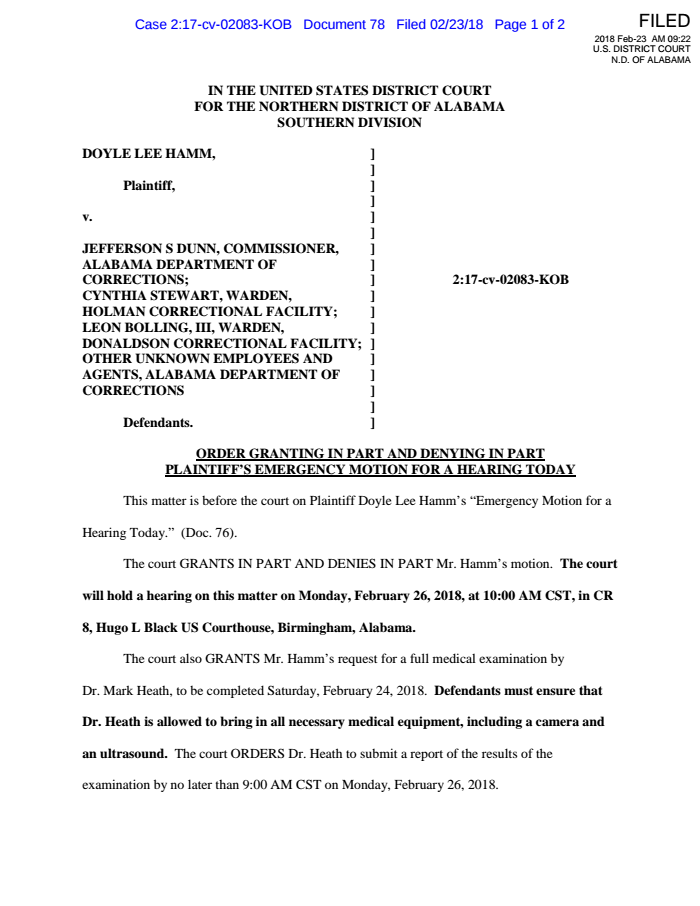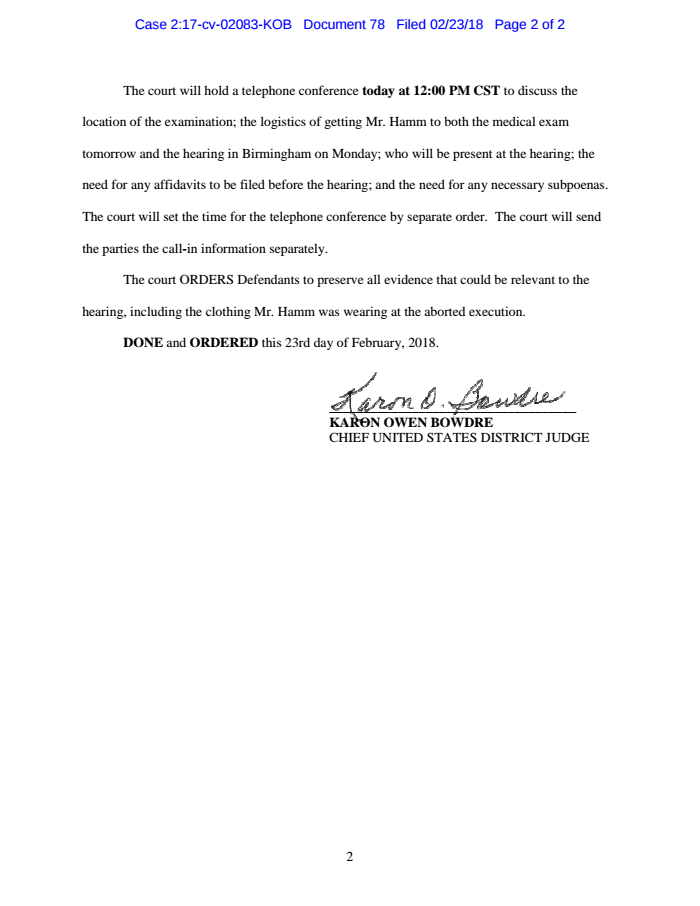
Feb. 24 (UPI) — A federal judge on Friday ordered the state of Alabama to preserve all evidence of the aborted execution of an inmate who says his veins are too damaged for lethal injection.
The Alabama Department of Corrections called off the execution of Doyle Lee Hamm on Thursday night, minutes before his death warrant expired at midnight.
Hamm’s lawyer, Bernard Harcourt, said the state’s failure to execute the man proved an argument he made to the Supreme Court. He said Hamm’s veins had been too damaged by prior drug use and treatment for cancer.
“They probably could not find a vein, as we had insisted since July,” Harcourt tweeted. “Unconscionable. Simply unconscionable.”
U.S. Chief District Judge Karon O. Bowdre of the Northern District of Alabama, ordered a hearing to be held Monday to determine why officials called off the execution. She ordered a full medical evaluation of Hamm and for the state to preserve all evidence relevant to the hearing, including the clothing Hamm wore “at the aborted execution.”
On Thursday evening, the Supreme Court initially issued a temporary stay for Hamm’s execution, but lifted it before 9 p.m. Harcourt questioned what happened between the lifting of the stay and when the state called off the execution.
Hamm was diagnosed with lymphoma in 2014, but the Alabama Attorney General’s Office has argued it is now in remission and he is healthy enough to be executed.
“Hamm’s claim was that he has compromised veins that prevent him from being executed by lethal injection. That claim was refuted by medical evidence,” the Attorney General’s office said in response to Hamm’s appeal for a stay.
Hamm was convicted in 1987 of killing motel clerk Patrick Cunningham.







